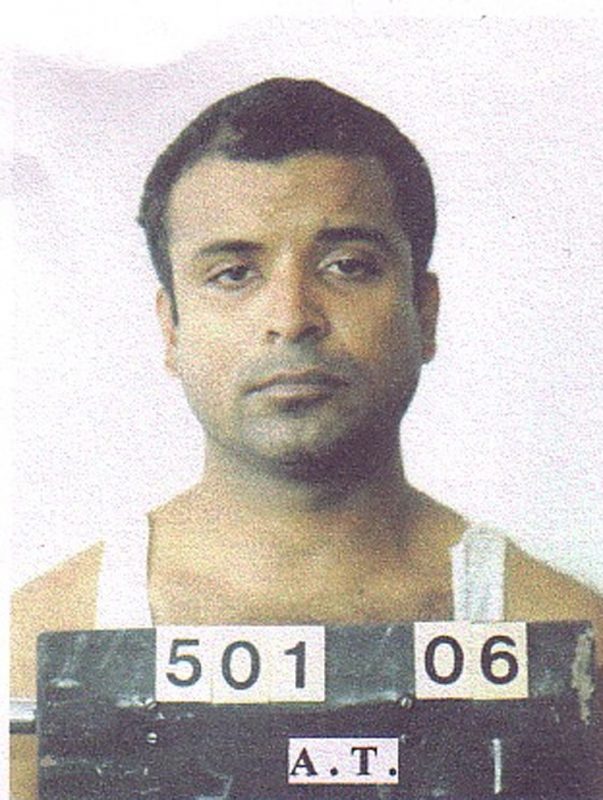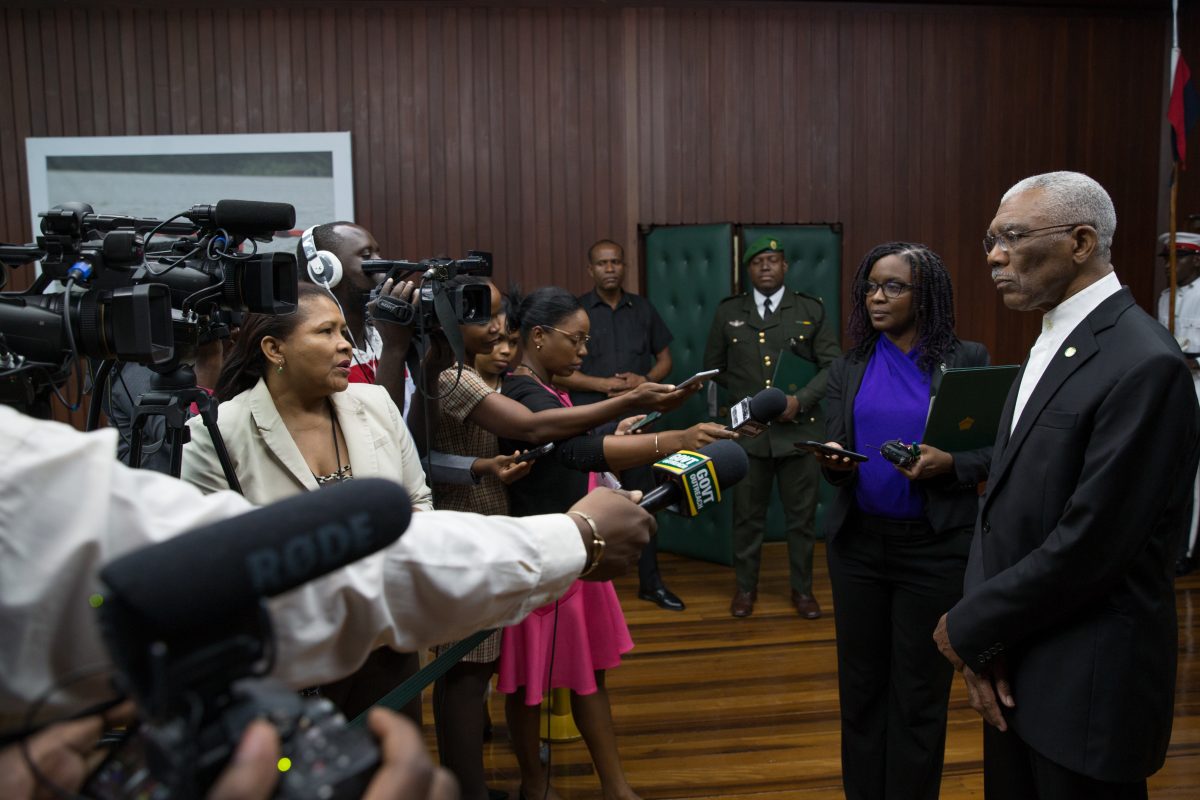The lack of evidence that can stand up in court and the refusal of persons to come forward and give information to the police are the reasons behind convicted drug trafficker Roger Khan not being charged locally, according to President David Granger who said he finds the situation of witnesses not coming forward disappointing.
President Granger was asked yesterday by Stabroek News why Khan, who was said to have been involved in drug trafficking and a series of other transgressions during the post-2002 crime spree, had not been charged since he returned to Guyana. Khan was deported to Guyana last month after he had served his 15-year sentence in a US jail for drug trafficking but was only questioned by the police here for two days on two murders before he was released on bail.

The President was asked on the sidelines of an accreditation ceremony at the Ministry of the Presidency as to why given that he had commented often on the so-called `troubles’ involving Khan, the convicted trafficker had not been charged on his return to Guyana.
Granger, who currently heads a caretaker administration, said that charging Khan or holding a Commission of Inquiry (CoI) into his activities would be based on the acquisition of evidence.
The Head of State pointed out that a previous Commissioner of Police in relation to a massacre had said that all of the witnesses had been killed, a statement he found very difficult to believe. The Police Commissioner that the President was referring to was Seelall Persaud who had made this statement in relation to the 2008 Lindo Creek massacre during that CoI.
According to Granger, his Government did make a start in investigating the `troubles’ by convening a CoI into the Lindo Creek massacre and even now the relatives of those killed would like to see some follow-ups.
Launching the Lindo Creek CoI on January 31, 2018, the President had said “This is really a massacre of the innocents and we feel that the way in which the investigation was handled indicated that there was a high level of collusion by the Government of the day. We feel that this will be a pivotal investigation, which will unravel the criminal network, which was behind the killings in what is now called the ‘Jagdeo era’, during the ‘troubles.’ When we see the report of this Commission of Inquiry, it will lead to other Commissions. You know [there was the death of a former Minister]; it is really beyond belief that a President of a country could have one of his Cabinet Ministers assassinated and not even hold an inquest or an inquiry”.
Yesterday, the President said about the inquiry: “We are in discussions with them (the relatives) about the recommendations of the Lindo Creek massacre, but it pointed out the fact that there has not been any smoking guns, that evidence has not been sufficient to bring anybody to justice and that many of the possible witnesses have been killed or eliminated.”
A major consideration, he said, is that there might be people who are unwilling to speak because they feel they could be targeted.
“We would like to bring these matters to a closure to the relatives of the persons who were killed, Lindo Creek was a good lesson for us. We may spend millions of dollars, we may interview persons but those persons who are culprits or might have been implicated or might even have knowledge of what took place have not come forward and given us the type of evidence on which we can go to court and have convictions,” the President said.
“It is very disappointing for me but that is part of the reality that during the `troubles’ people were easily eliminated and even now people are being executed it is difficult for the police to find the motivation for such executions,” he said.
One such execution, he said, was that of activist Courtney Crum-Ewing, which he said was “most notorious”. Crum-Ewing was on March 10, 2015 shot dead at Third Avenue, Diamond Housing Scheme, East Bank Demerara while urging residents to vote against the PPP in the General and Regional elections which had been scheduled for May 11.
The President said it is an ongoing task of the police force and he is convinced that it [the force] would like to move ahead further or faster but “a lot of people had been killed and dead men tell no tales.”
Under the Bharrat Jagdeo administration, Khan was thought to have been given free rein to go after persons he determined to be criminals in the period following the 2002 jail-break when five escapees triggered a crime wave the likes of which had never before been seen in the country.
Some believe that Khan could have been prevailed upon to provide information on his activities here post the 2002 jail-break and up to the point he fled from Guyana. He was arrested in Suriname in June, 2006 and was seized by US authorities in Trinidad while ostensibly en route to Guyana. Khan was released from a US prison in early July this year after serving almost ten years of a 15-year sentence for drug trafficking. He was sentenced after he pleaded guilty to trafficking cocaine, witness tampering and gun-running.






